Among the many contributions the remarkable Annie Besant made to Indian nationalism was the establishing in 1914 of the Young Men’s Indian Association – a challenge to the YMCA. The purpose of the YMIA was to serve as “a political gymnasium as it were, to equip the youth with a strong body, an informed mind and a noble character”.
The following year, the YMIA’s HQ opened – Gokhale Hall, on Armenian Street in Madras. Annie Besant paid for the construction herself. It took the name of Gopal Krishna Gokhale, a leader of the Indian National Congress and founder of the Servants of India Society, who died in February 1915.
The hall has been sealed off for a decade at least. It’s caught up, apparently, in a property dispute – with heritage enthusiasts seeking to block plans for demolition. But as the row rumbles on, one of the main venues of Indian nationalism is sliding rapidly into dereliction.
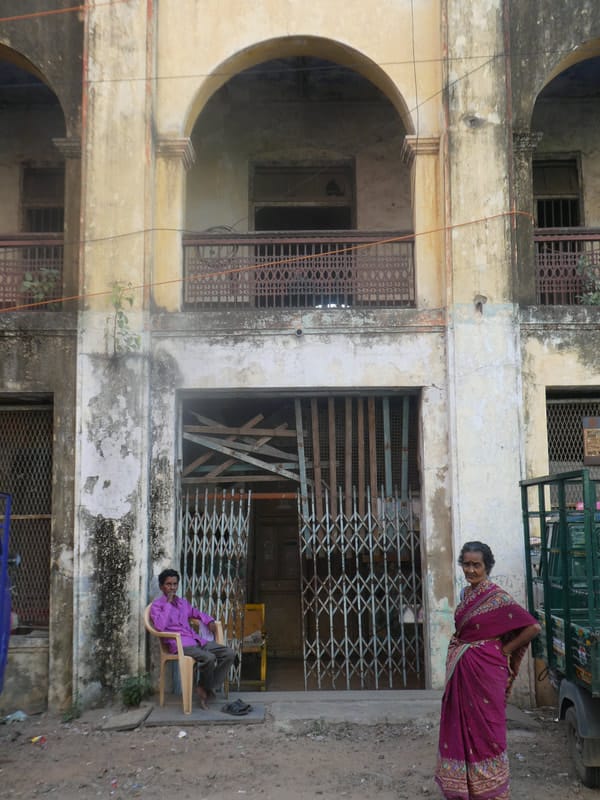
Annie Besant established the Home Rule League in this hall and it’s where she delivered her ‘Wake Up, India’ lectures. It was also used as a venue by the Justice Party, the pioneer of the Dravidian movement which now dominates the region’s politics and a precursor of the anti-caste, anti-religion, self respect movement.
Periyar, the firebrand of twentieth century Tamil radicalism, spoke here. So too did Jawaharlal Nehru, the first prime minister of independent India.
Nehru once declared, in tribute both to the building and to Besant: “The Gokhale Hall has been the scene of great achievements in oratory and public speaking as well as music and the fine arts. It has received with open arms persons of every description without distinction of caste, creed, colour or political persuasion. The Hall ever reminds us of the voice of its founder and no one associated with it can ever forget the inspiration of that voice.”
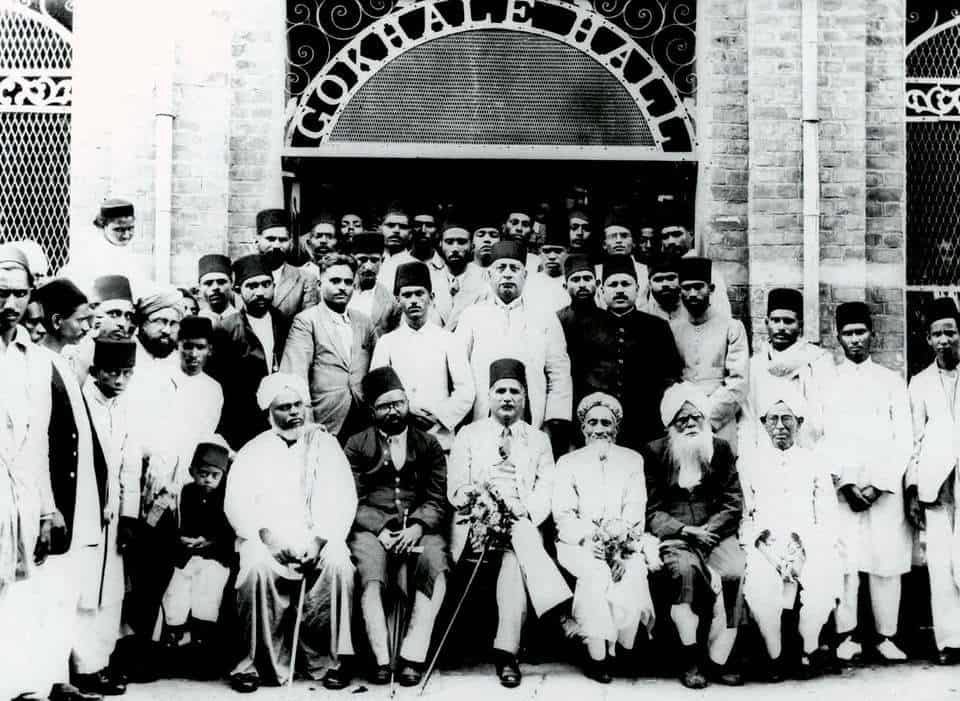
The photograph above – taken from Reddit – dates from 1929. At the centre of the front row is the Urdu writer and poet, Muhammad Iqbal, who died before independence but has been described as the ‘spiritual father’ of Pakistan.
After independence, the hall became a venue for Tamil music and cultural events. But it is now slipping into dilapidation.
The hall has a caretaker who sits outside the shuttered entrance and keeps all-comers at bay. When I spotted a door leading into the hall ajar and started to photograph through the security grille, he quickly closed this peephole on the hall’s once glorious past.
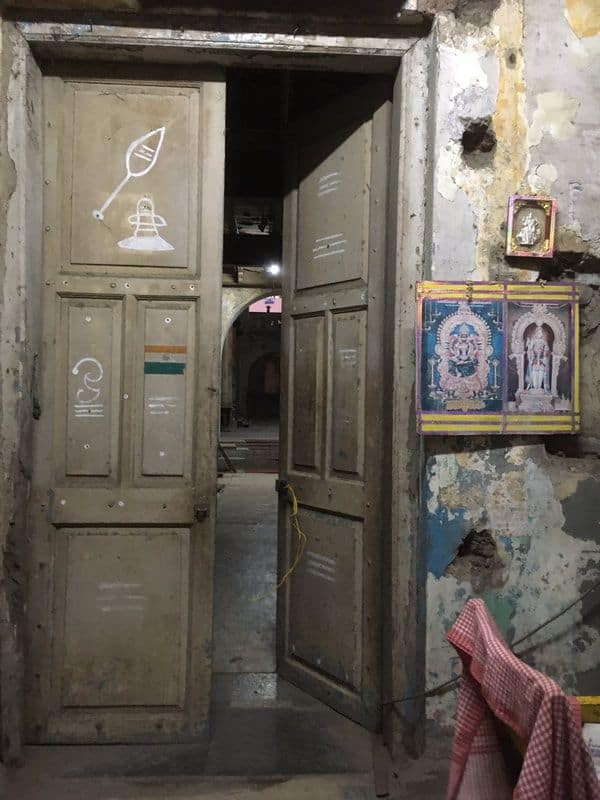
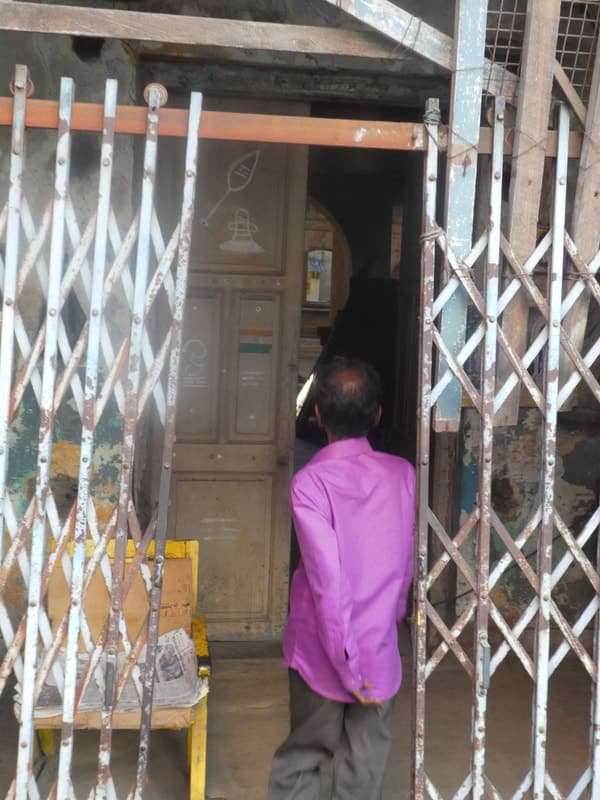
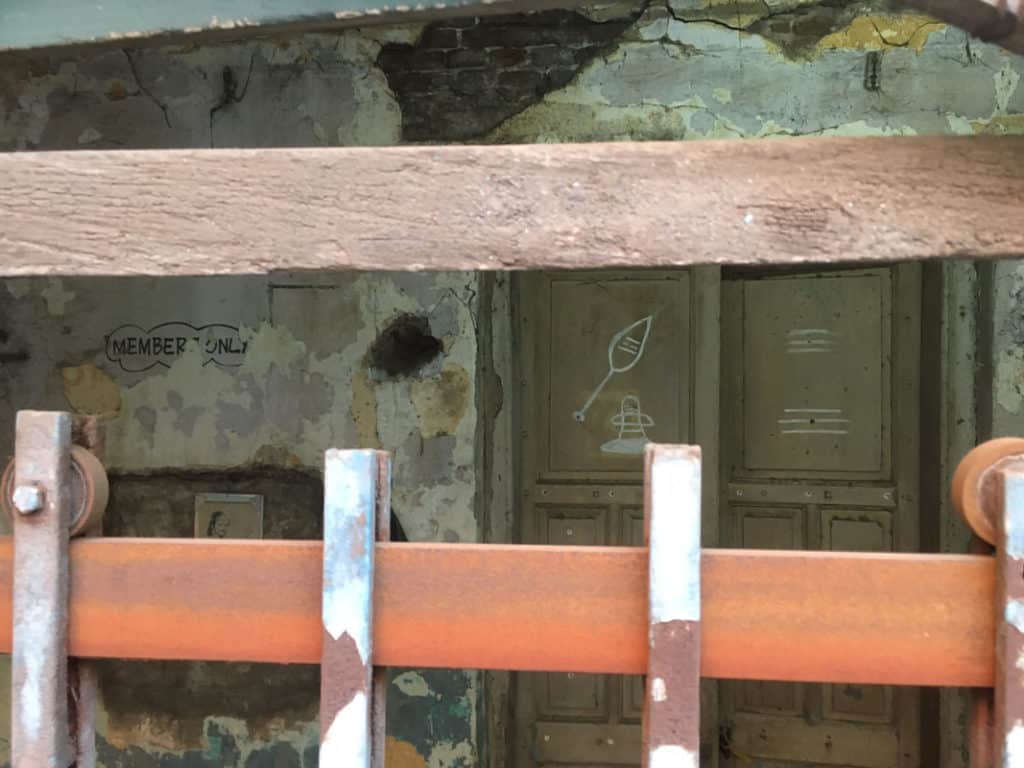
Quite by chance, I came across another YMIA building a short distance away on the splendidly named Second Line Beach Street (aka Moor Street). And I caught just a glance of a statue of Annie Besant – and alongside, a bust of Sir William Wedderburn, a co-founder of the Indian National Congress and colleague of both Besant and Gokhale.
It transpires these items have been retrieved from Gokhale Hall and appear to be well cared for in their new home.

Unlike Gokhale Hall, this YMIA building is still in use. It has a small library (consisting of a locked display cabinet), a gym, a boxing exercise room and – the only part of the building with any activity when I popped by – a room devoted to the table-top game, carrom.
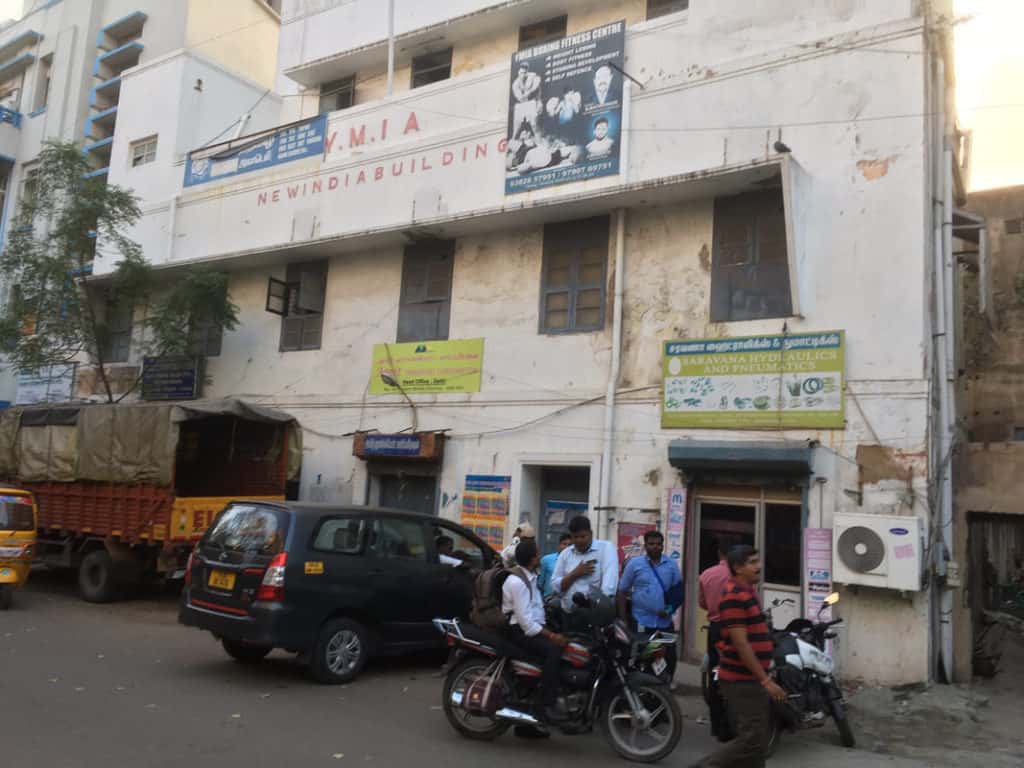
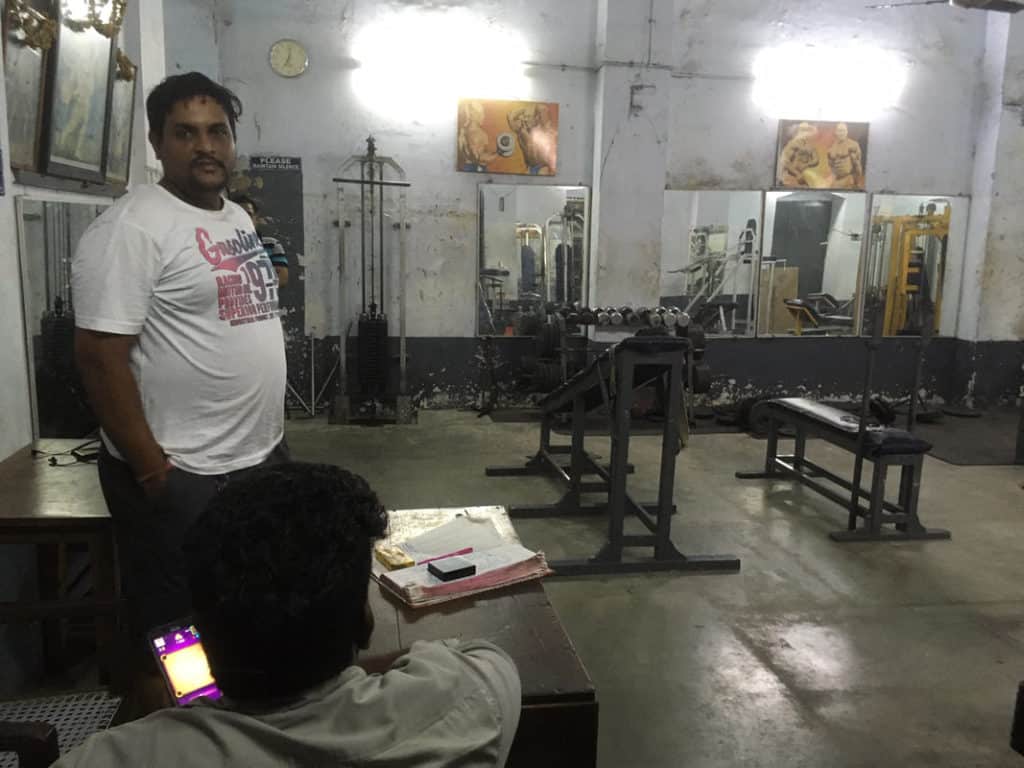
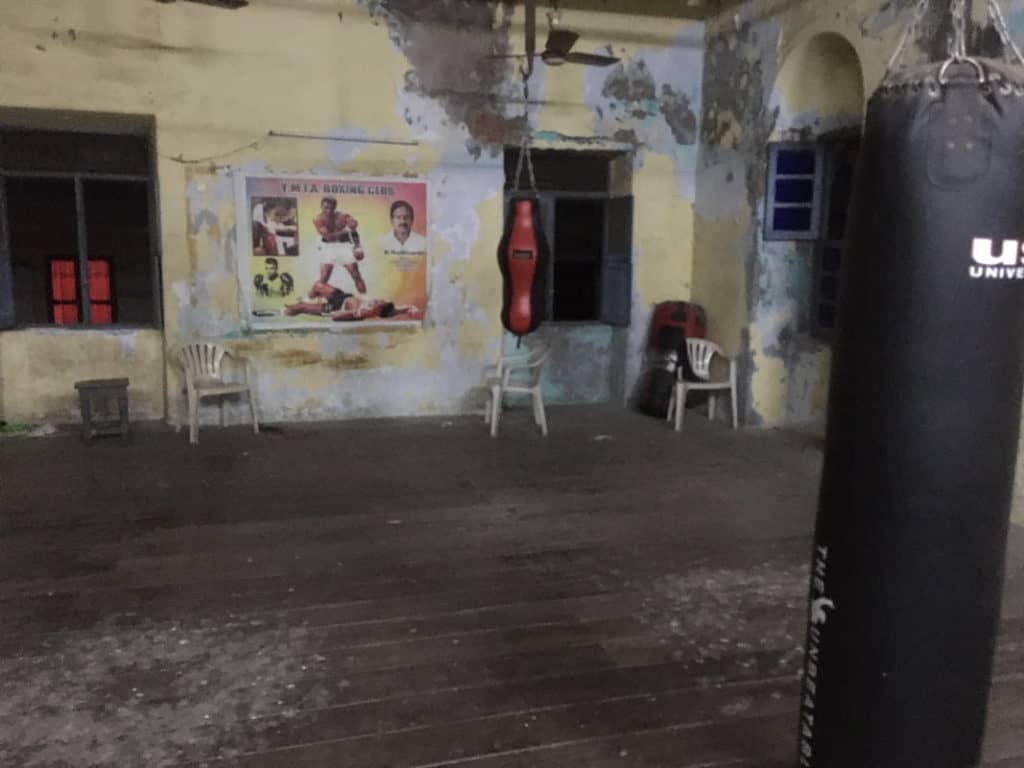
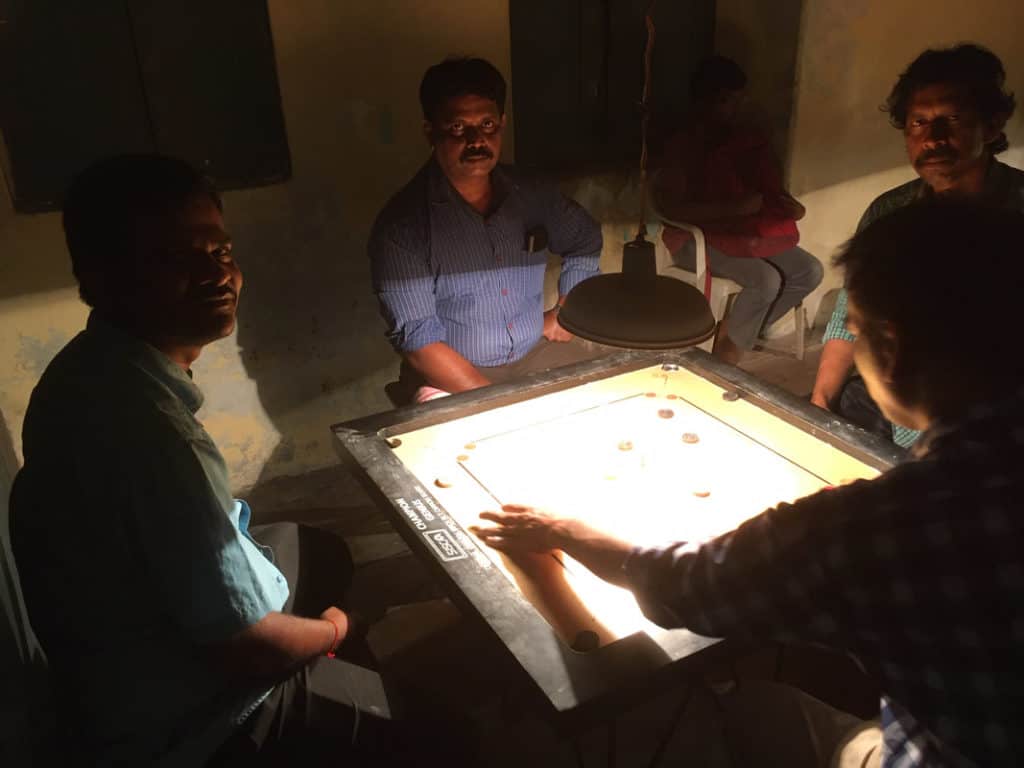
[This post was first published on the author’s blog and has been republished with permission. The original can be found here.]
I am shocked to see the plight of this historic Gokhale Hall.I was almost in tears as I have visited this Hall in 1960s very many times.Is there no way of reviving this heritage building?
If a project to revive it started & CSR funds can be spent I would be happy to be associated.